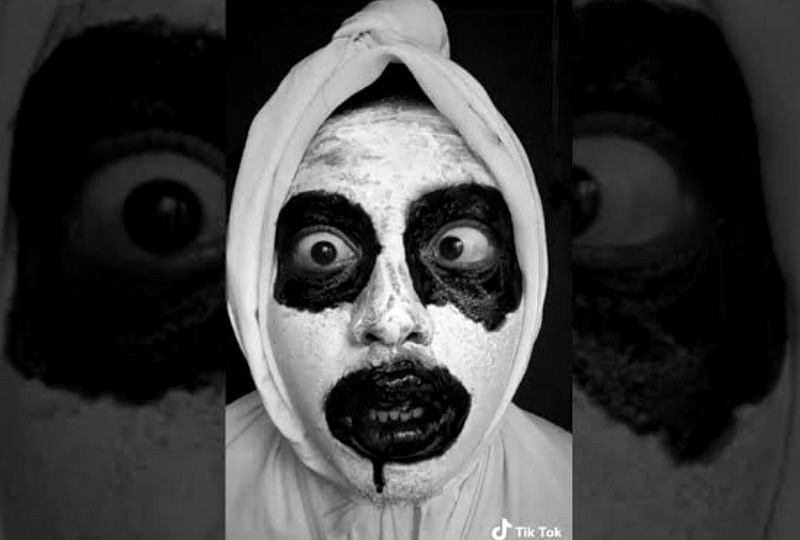Cancer Immunotherapy Market Assessment Covering Growth Factors and Upcoming Trends & Forecast (2021-2027)

Research report presented by UnivDatos, Emphasis on Therapy Type (Monoclonal Antibodies, Vaccines, Checkpoint Inhibitors, Cell Therapies, Immune System Modulators, Adoptive Cell Transfer, Cytokines, and Others), Application (Lung cancer, Breast cancer, Colorectal cancer, Melanoma, Prostate cancer, Head and neck cancer, Others), End-User (Cancer Specialty/Research Centers, Hospitals & Clinics), and Geographical analysis (key regions and countries).
As per the research report, Global Cancer Immunotherapy Market is expected to reach the market valuation of USD 174.33 billion by 2027 expanding at a reasonable CAGR of 10.25% during the forecast period (2021-2027) from USD 87.4 billion in 2020.
Conventional cancer treatments are still the most practiced and the most canonical therapies of today`s medical anti-cancer strategies. They comprise surgery, chemotherapy, and radiation therapy, while cancer immunotherapy is emerging as the new approach that is further being increasingly accepted and has only recently been innovated and approved. In early 2018, approximately 32 monoclonal antibodies were approved by the FDA or EMA for cancer immunotherapy for a cancer indication and medical purpose. The surging cancer incidence and rising geriatric population is anticipated to boost the market growth. In 2020, an estimated 19.3 million new cancer cases (18.1 million excluding nonmelanoma skin cancer) will be diagnosed worldwide, with almost 10.0 million cancer deaths (9.9 million excluding nonmelanoma skin cancer). Female breast cancer has surpassed lung cancer as the most diagnosed cancer, with an estimated 2.3 million new cases (11.7%), followed by lung (11.4%), colorectal (10.0%), prostate (7.3%), and stomach (5.6%) cancers.
For complete research, request for Sample of the report browse through – https://univdatos.com/request_form/form/364
According to a study titled as “Estimation of the Percentage of US Patients with Cancer Who Are Eligible for and Respond to Checkpoint Inhibitor Immunotherapy Drugs” conducted in 2019 by Alyson Haslam and Vinay Prasad, the estimated percentage of eligible cancer patients in the United States for checkpoint inhibitor drugs was 1.54% in 2011 and increased to an estimated 26.86% by 2015 and 43.63% in 2018. Furthermore, NSCLC (21.48%), hepatocellular carcinoma (4.95%), and SCLC were the diseases that contributed the most to the eligibility calculation (3.79%). In 2016, immunotherapy treatments captured 33% of spending on oncology drugs, despite accounting for just 9% of FDA-approved oncology drugs. All the large oncology drug companies are building robust immunotherapy pipelines, driving increased M&A and investor interest. Several cancer immunotherapies such as monoclonal antibodies have the diverse set of clinically relevant mechanisms of action like directly targeting tumor cells while simultaneously promoting the induction of long-lasting anti-tumor immune responses. During the outbreak of COVID-19, several cancer patients worldwide had experienced long-lasting city lockdown and delay of immunotherapies. For instance, in China treatment showed that the delay of three to four months might have mild, if any, influence on the efficacy of immunotherapy for patients with well-controlled disease.
AbbVie, Amgen, AstraZeneca, bluebird bio, Bristol-Myers Squibb, F. Hoffmann-La Roche, Janssen Biotech, Merck, Novartis, and Pfizer are some of the prominent players operating in the global Cancer Immunotherapy market. Several M&A’s along with partnerships have been undertaken by these players to facilitate costumers with hi-tech and innovative products.
For a detailed analysis of the COVID-19 Impact on Cancer Immunotherapy browse through - https://univdatos.com/report/cancer-immunotherapy-market-current-analysis-and-forecast-2021-2027
Insights Presented in the Report
“Amongst therapy, monoclonal antibodies segment holds the major share”
Based on the therapy type, the market is fragmented into monoclonal antibodies, vaccines, checkpoint inhibitors, cell therapies, immune system modulators, adoptive cell transfer, cytokines, and others. The monoclonal antibodies segment dominated the market with a share of 37.3% in 2020 and is expected to maintain its dominance during the forecast period owing to the diverse set of clinically relevant mechanisms of action.
“Amongst application, breast cancer is anticipated to grow at the highest CAGR during the analyzed period”
Further based on application, the market is fragmented into lung cancer, breast cancer, colorectal cancer, melanoma, prostate cancer, head and neck cancer, other cancer applications. In 2020, lung cancer accounted for a maximum market revenue share of 25.5% and is expected to remain dominant during the analyzed period. However, the breast segment is anticipated to grow at the highest CAGR over the forecast period and reach market evaluation of USD 36.10 million by the end of the forecast year. Breast cancer accounts for 1 in 4 cancer cases and 1 in 6 in cancer mortality.
For a detailed analysis of the technology in Cancer Immunotherapy browse through - https://univdatos.com/report/cancer-immunotherapy-market-current-analysis-and-forecast-2021-2027
Amongst end-user, cancer specialty/research centers segment holds the major share”
Based on the end-user type, the market is fragmented into Cancer Specialty/Research Centers and hospitals and clinics. The cancer specialty/research centers dominated the market in 2020 with revenue of USD 55.43 billion and are anticipated to maintain their dominance during the analyzed period. Furthermore, the segment is also expected to grow at the highest CAGR during the period.
“North America signifies one of the largest markets of Cancer Immunotherapy Market”
For a better understanding of the market dynamics of the Cancer Immunotherapy market, a detailed analysis was conducted for different regions across the globe including North America (United States, Canada, and the Rest of North America), Europe (Germany, France, Italy, Spain, United Kingdom and Rest of Europe), Asia-Pacific (China, Japan, India, and Rest of APAC), Rest of World has been conducted. North America dominated the market and generated revenue of USD 37.56 billion in 2020. In America, nearly 1.9 million new cancer cases are expected to be diagnosed in 2021. Approximately 608,570 Americans are expected to die of cancer in 2021, which translates to about 1,670 deaths per day. Cancer is the second most common cause of death in the US, exceeded only by heart disease.
Customization Options:
The Cancer Immunotherapy Market can further be customized as per the requirement or any other market segment. Besides this, UMI understands that you may have your own business needs, hence feel free to connect with us to get a report that completely suits your requirements.

Knowing about the utilities of a relief valve in the industrial arena
- Although many industries use a Safety Valve but the two industries that use them the most are the oil, gas, and petroleum industry.

As advances in AI continue to continue to progress in leaps and bounds
- As advances in AI continue to continue to progress in leaps and bounds, accessibility to data science at a base level has become increasingly democratized

Frozen Bakery Products Market Report, Size 2021: Global Trends, Top Players Updates - UMI
- The Frozen Bakery Products Market report has been aggregated by collecting informative data of various dynamics such as market drivers, restraints.

Retail Analytics Market Assessment Covering Growth Factors and Upcoming Trends & Forecast (2021-2027)
- Retail Analytics Market: Research Report Overview by Industry Size, Share, Trends, Growth & Leading Players | Emphasis on Component (Software, Service)